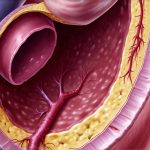Gastroesophageal reflux disease (GERD), often associated with older adults, is increasingly prevalent among young adults – those in their 20s and 30s. This rise isn’t necessarily due to a higher incidence overall, but rather increased awareness and diagnosis, coupled with evolving lifestyle factors that contribute to the condition. Many younger individuals attribute occasional heartburn to normal digestion or stress, delaying proper evaluation, which can lead to chronic issues if left unaddressed. Understanding gerd in infants in this demographic requires recognizing its unique causes and adopting preventative strategies specifically tailored to modern young adult lifestyles.
The experience of GERD – characterized by frequent heartburn, regurgitation, difficulty swallowing, and sometimes even respiratory symptoms – significantly impacts quality of life. It’s not simply about discomfort; chronic GERD can erode tooth enamel, contribute to asthma exacerbations, and potentially increase the risk of more serious complications down the line. While medication is often effective in managing symptoms, a holistic approach encompassing lifestyle modifications and dietary adjustments frequently provides lasting relief and addresses the underlying causes. This article will delve into the specific factors driving GERD in young adults and offer practical prevention strategies to help maintain digestive health.
Understanding the Root Causes of GERD in Young Adults
The typical image of someone suffering from GERD – an older adult with a history of dietary indiscretion – is becoming less accurate. In young adults, several factors are contributing to this growing prevalence. One significant contributor is dietary habits. The modern Western diet, characterized by processed foods, high fat content, and large portion sizes, places considerable stress on the digestive system. Quick meals, frequent snacking, and a reliance on convenience foods often lack essential fiber and nutrients needed for optimal gut function. This can lead to increased stomach acid production and weakened lower esophageal sphincter (LES), the muscle that prevents stomach contents from flowing back into the esophagus.
Beyond diet, lifestyle choices play a crucial role. Increased stress levels due to academic pressures, career demands, or financial concerns are common in young adulthood. Stress impacts digestion by altering gut motility and increasing acid production. Similarly, smoking, even occasional social smoking, weakens the LES and increases stomach acidity. Obesity rates continue to rise among younger populations, further exacerbating GERD symptoms as excess weight puts pressure on the abdomen, forcing stomach contents upward. Finally, certain medications – including some pain relievers and antidepressants – can have side effects that contribute to acid reflux.
It’s also important to note that some young adults may have underlying anatomical or physiological predispositions to GERD. These include hiatal hernias (where part of the stomach protrudes through the diaphragm), delayed gastric emptying, or simply a naturally weaker LES. Identifying these factors requires medical evaluation but often goes unnoticed until symptoms become persistent and disruptive. It’s essential to remember that occasional heartburn is normal; frequent, bothersome symptoms warrant investigation. If you are experiencing bad breath along with GERD, consider looking into gerd and bad breath.
Dietary Modifications for GERD Prevention
Dietary changes are often the first line of defense against GERD. This doesn’t necessarily mean drastic restrictions or deprivation but rather making informed choices about what and how you eat. A key principle is to identify trigger foods – those that consistently worsen your symptoms. Common culprits include:
– Fatty and fried foods
– Spicy foods
– Citrus fruits and juices
– Tomatoes and tomato-based products
– Chocolate
– Caffeine
– Carbonated beverages
– Alcohol
Eliminating or significantly reducing these foods can dramatically improve GERD symptoms for many individuals. Beyond avoiding triggers, focusing on a diet rich in fiber – found in whole grains, fruits, and vegetables – promotes healthy digestion and regular bowel movements, reducing pressure on the stomach. Lean proteins are preferable to fatty meats, and smaller, more frequent meals can help prevent overfilling the stomach.
Another vital aspect of dietary modification is mindful eating. Eating slowly, chewing thoroughly, and avoiding large meals before bedtime give the digestive system time to process food properly and reduce the likelihood of reflux. Hydration is also crucial, as water aids in digestion and helps neutralize stomach acid. However, avoid drinking large amounts of water during or immediately after meals, which can distend the stomach. If children are experiencing similar issues, you might want to learn about diarrhea in children.
Stress Management Techniques
The link between stress and GERD is well-established. When stressed, the body releases cortisol, a hormone that can increase stomach acid production and disrupt normal digestive processes. Chronic stress also leads to unhealthy coping mechanisms – like overeating or smoking – further exacerbating GERD symptoms. Therefore, incorporating effective stress management techniques into daily life is paramount for prevention.
Techniques such as deep breathing exercises, meditation, yoga, and mindfulness can help calm the nervous system and reduce cortisol levels. Regular physical activity is also a powerful stress reliever, releasing endorphins that have mood-boosting effects. Prioritizing sleep – aiming for 7–8 hours of quality sleep each night – allows the body to recover and regulate hormone production.
Furthermore, identifying sources of stress and developing strategies to manage them proactively is crucial. This might involve setting realistic goals, learning to say “no” to excessive commitments, or seeking support from friends, family, or a therapist. Stress isn’t simply an emotional burden; it has tangible physiological effects that can directly contribute to GERD. Consider looking into nausea and indigestion in infants if symptoms are present.
Lifestyle Adjustments for Long-Term Relief
Beyond diet and stress management, several lifestyle adjustments can significantly reduce the risk of GERD in young adults. Maintaining a healthy weight is essential, as excess weight puts pressure on the abdomen and increases the likelihood of reflux. Regular exercise – at least 30 minutes of moderate-intensity activity most days of the week – aids in weight management and improves overall digestive health.
Avoid wearing tight-fitting clothing, which can constrict the abdomen and increase intra-abdominal pressure. Elevating the head of your bed by 6–8 inches can also help prevent nighttime reflux. This can be achieved using bed risers or a wedge pillow. Avoid lying down immediately after eating; wait at least two to three hours before reclining.
Finally, be mindful of medication side effects. If you’re taking medications that may contribute to GERD, discuss alternative options with your doctor. Prevention is always preferable to treatment, but if symptoms persist despite lifestyle changes, seek medical evaluation to rule out underlying conditions and explore appropriate treatment options. For those experiencing issues with bloating in children, it’s best to consult a doctor. If you find yourself struggling with constipation, learning about constipation in children can be helpful too. A proactive approach to digestive health will not only alleviate GERD symptoms but also promote overall well-being in young adulthood.


















